The Sacramento Kings number one priority this offseason is to retain their Sixth Man of the Year runner-up, Malik Monk. But given the way the salary cap works, they can only offer him so much money. So, they need to prepare themselves for a doomsday scenario where Monk walks out the door.
If Monk walks, the Kings need to find a player who can replace his spacing, on-ball scoring, and playmaking. To do so (if they choose to go with the free agency route for replacing him), the Kings have their Non-Taxpayer Mid-Level (worth about 12.9 million dollars this offseason) and Bi-Annual Exception (worth about 4.7 million dollars). Plus, the Kings can also sign as many players to veteran minimums as they please (so long as they have a roster spot for them).
With all this in mind, here are five options the Kings could replace Monk with using the cap assets that are available to them.
Monte Morris
We’ll start with Monte Morris since he’s included in the thumbnail of this post. This past season was a strange one for the soon-to-be eighth-year guard, as he spent most of the regular season injured (only appeared in 33 games) and then proceeded to ride the pine for a majority of the playoffs (67 total playoff minutes).
Despite all this, Morris does check the three boxes we mentioned earlier. Last year, he was in the 72nd percentile in 3-point percentage (spacing), the 73rd percentile in unassisted field goals (on-ball scoring), and the 76th percentile in assist percentage (playmaking), per Dunks & Threes.
Even with those numbers, he’s no Monk (frankly, no one on this list is). But since Morris coming off an unspectacular season, the Kings can probably get him at a discounted rate and use the spare coin to address other needs.
Alec Burks
When Alec Burks first got traded to the New York Knicks at the 2024 Trade Deadline, he had a hard time earning Head Coach Tom Thibodeau’s trust. Burks logged a DNP-CD (did not play, coach’s decision) in seven of the team’s last 12 regular season games.
That trend continued through the Knicks’ first seven postseason games until injuries forced Thibodeau to re-insert Burks back into the lineup. From there, Burks made sure to seize the moment, averaging 14.8 PPG on 69.4% true shooting in New York’s final six postseason games.
Burks is a significantly worse passer (47th percentile in assist percentage) than Monk (94th percentile assist percentage) or even Morris (see last slide). However, what he lacks in playmaking chops he makes up for with his shooting (career 38.3% 3-point shooter) and bucket-getting (85th percentile in scoring volume) abilities.
At the end of the day, like Morris, this would be a clear downgrade from Monk. But again, you have to factor in the discount they’ll be getting by replacing Monk with Burks and how those savings could help the team elsewhere.
De’Anthony Melton
De’Anthony Melton is by far my favorite combo guard replacement for Monk. Like the others we’ve mentioned above, Melton isn’t the offensive weapon that Monk is. Last year, Melton was in the 49th percentile in 3-point percentage, the 62nd percentile in unassisted field goals, and the 61st percentile in assist percentage.
But even if these numbers aren’t Monk-level, they are good enough that his contributions on the other end of the court make up for it. Where Monk is an offensively-slanted player, Melton is what you would consider a two-way guard. This season, Melton was in the 87th percentile in Defensive Estimated Plus-Minus (DEF EPM). Meanwhile, Monk was just in the 19th percentile in this area.
Melton also gives the Kings a better chance of building a strong defense around Domantas Sabonis. Melton gives you positive positional rim protection. This year, he was in the 59th percentile in block rate for his position (per Cleaning the Glass).
The only reason he wasn’t higher in block rate is because Cleaning the Glass changed his positional taxonomy from combo guard to wing (I have no idea why they would do that, considering he spent 95% of his minutes at PG or SG last season, per Basketball Reference). Before the change, Melton consistently found himself in the 90th percentile or higher in block rate.
We know what you’re thinking. If Melton is so good, how could the Kings afford to get him? Fortunately for the Kings (but unfortunately for Melton), the soon-to-be seventh-year guard had an injury-riddled 2023-24 campaign that saw him only play in 38 regular season games and seven total playoff minutes. This could lead to him being willing to sign the Non-Taxpayer Mid-Level.
His nagging back injury could have long-term implications. But if it doesn’t, Melton could be a great option to replace Monk.
Spencer Dinwiddie
Last season was not kind to Spencer Dinwiddie. He was overburdened as a primary creator on the Brooklyn Nets before being tasked with an awkward 3-and-d role on the Los Angeles Lakers.
However, it wasn’t long ago that Dinwiddie was playing a crucial role as a supercharged bench guard on the 2021-22 Dallas Mavericks, who, if you recall, made it to the Western Conference Finals. In 18 playoff games, Dinwiddie averaged 14.2 PPG and 3.6 APG on 57.6% true shooting.
He was also solid enough on defense to log nearly 28 minutes per game. Dinwiddie has never been a great defender. But that run proves that he can be serviceable if put in the right environment.
The Kings have an opportunity to offer him a focused role that is similar to the one he fulfilled with the Mavericks. He can run the offense for the 12-15 minutes per game that De’Aaron Fox needs a breather and play alongside him for another 8-10.
Like many of the other names on this list, his falling stock will enable the Kings to replace Monk while also addressing other weaknesses.
Addressing A Different Weakness
There is also a world where the Kings decide to nab Monk’s heir apparent in the 2024 NBA Draft (I’ve heard Jared McCain would be a good option for that). They also could fill the Monk void via a trade (by dangling draft capital and Kevin Huerter/Harrison Barnes).
If that happens, Sacramento can use its Non-Taxpayer Mid-Level to add some more functional size (as we’ve written about here before). Caleb Martin, Kelly Oubre Jr., Nicolas Batum, Miles Bridges, and Jae’Sean Tate (among others) are all guys that could potentially be had for that 12.9 million dollar figure or less.
In particular, I’m a really big fan of the idea of signing Oubre. With a 7’2 wingspan, Oubre is a terror on the defensive playmaking front, placing in the 78th percentile in steal rate and 70th percentile in block rate among forwards last season.
He’s also a jitterbug who boasts some of the best gait in basketball, making him the perfect fit for the Kings’ breakneck offensive pace. Plus, he’s flashed some on-ball creation juice (something he developed in his time with the Charlotte Hornets). Over the last three years, Oubre has placed in the 76th percentile or higher in scoring volume.
Another sneaky name I like is Tate. He’s a good defender with the ability to put the ball on the floor (84th percentile in true shooting on drives, per Thinking Basketball). I think he just got overlooked by the Houston Rockets because they have so many young wings/forwards.
At the end of the day, none of these options are perfect replacements for Monk and the spunk he brings to this team. The Kings need to do whatever it takes to keep him. But they also need to develop a contingency plan in case they can’t.

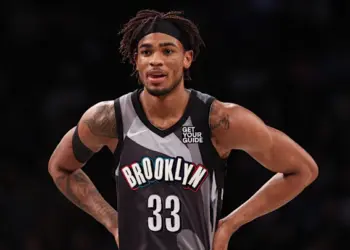
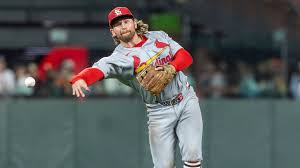
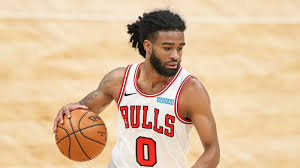

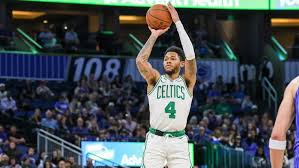
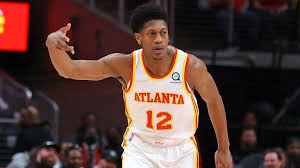

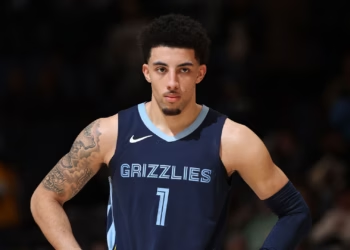


Discussion about this post